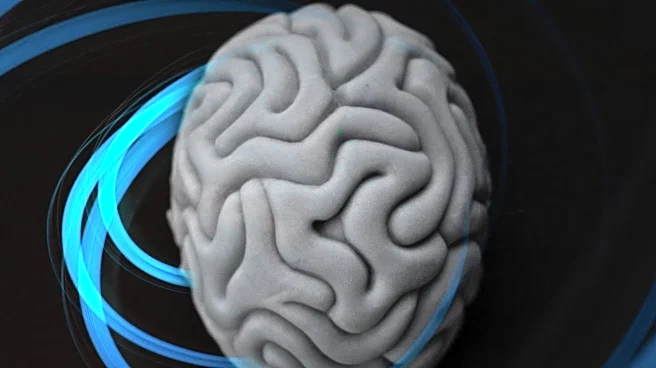What is the story about?
What's Happening?
Researchers at the University of California San Francisco have identified a protein, ferritin light chain 1 (FTL1), as a significant factor in brain aging. The study, published in Nature Aging, found that reducing FTL1 in the hippocampus of older mice improved their cognitive abilities and increased nerve cell connections. Conversely, increasing FTL1 in young mice led to cognitive decline. This discovery suggests that FTL1 plays a crucial role in the aging process of the brain, and manipulating its levels could potentially reverse age-related cognitive impairments.
Why It's Important?
This research offers promising insights into combating neurodegenerative diseases such as Alzheimer's, which are linked to protein accumulation in the brain. By targeting FTL1, scientists may develop new treatments to enhance cognitive function in the elderly, potentially improving quality of life and reducing healthcare costs associated with aging populations. The findings also contribute to the broader understanding of aging mechanisms, opening avenues for further research into how protein regulation can influence longevity and brain health.
What's Next?
The study's authors suggest further research to explore the therapeutic potential of FTL1 modulation in humans. Clinical trials may be necessary to determine the safety and efficacy of treatments aimed at reducing FTL1 levels. Additionally, the research community may investigate other proteins involved in aging, seeking comprehensive strategies to address cognitive decline. The findings could also prompt discussions on ethical considerations in manipulating biological aging processes.
Beyond the Headlines
The study raises ethical questions about the implications of reversing aging processes. While the potential benefits are significant, there are concerns about accessibility, long-term effects, and societal impacts of extending human lifespan. The research also highlights the importance of interdisciplinary collaboration in addressing complex health challenges, combining insights from neuroscience, genetics, and gerontology to develop holistic approaches to aging.
















